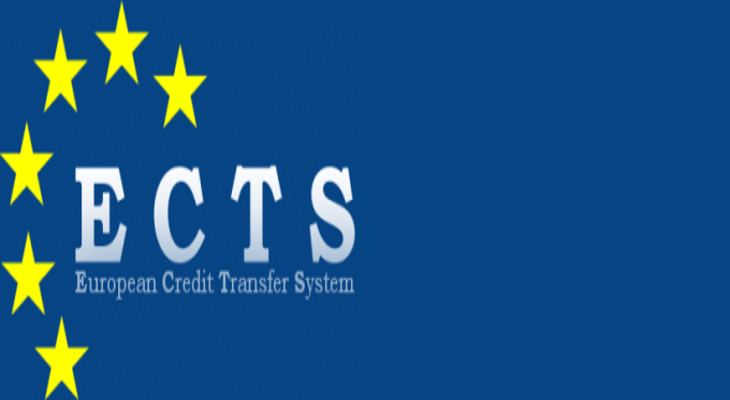The European Credit Transfer System (ECTS) is an instrumental framework designed to facilitate student mobility within European higher education. This system, developed in the late 1980s, emerged from the need to create a standardized method for measuring and comparing academic achievements across different countries. Within this context, the ECTS offers both a quantitative and qualitative assessment of student learning outcomes, serving as a bridge that connects diverse educational traditions and systems. From a Christian perspective, the implications of ECTS extend beyond mere academic interoperability; they also invoke themes of stewardship, purpose, and the intrinsic value of education.
At the core of ECTS is the concept of credit points, which signify workload and learning outcomes. One ECTS credit typically equates to 25 to 30 hours of student work, including lectures, independent study, examinations, and other forms of academic engagement. This workload-centric measurement allows institutions to quantify student efforts in a standardized manner, ensuring that students can transfer their academic achievements between universities without undue complication. Here lies an interesting observation: the ECTS not only facilitates straightforward educational exchanges but also embodies the deeper theological principle of unity in diversity—an essential tenet in the Christian faith.
The Christian worldview recognizes that individuals, much like educational systems, possess unique strengths and weaknesses. The ECTS accommodates these differences and fosters a spirit of collaboration among students and institutions. This ethos can be paralleled with the teaching found in 1 Corinthians 12:12-27, which describes the Church as one body composed of many parts, each having its unique role and function. When students from various backgrounds come together under the ECTS system, they build a tapestry of shared experiences and knowledge, contributing to a richer academic and cultural milieu. This unified approach echoes the Christian call for community, where believers are encouraged to support one another and grow collectively.
Furthermore, the ECTS encourages a holistic educational experience. By focusing on learning outcomes rather than merely on taught hours, it prioritizes understanding and application over rote memorization. This shift corresponds with the Christian belief in the pursuit of wisdom. Proverbs 4:7 states, “The beginning of wisdom is this: Get wisdom. Though it cost all you have, get understanding.” Within this framework, students are not just passive recipients of information; they are active participants in their educational journeys, seeking knowledge that transcends disciplinary boundaries.
As students engage with the ECTS, they also cultivate essential skills that resonate within the Christian ethical tradition—critical thinking, adaptability, and interpersonal communication. The globalized world necessitates competent individuals who can navigate complex cultural and academic landscapes with grace and humility. In this light, the ECTS serves as a vital tool for nurturing such qualities, equipping students for a lifetime of service and discipleship.
Moreover, the ECTS aligns with the Christian imperative for stewardship. Christians are called to be stewards not only of their resources but also of their intellectual and spiritual gifts. The ECTS provides a framework that encourages students to take ownership of their educational experiences. They are entrusted with the responsibility of managing their studies in a manner that reflects their values, priorities, and aspirations. The act of transferring credits between institutions is a metaphor for personal growth—navigating challenges, seizing opportunities, and continuously striving for excellence.
It is also essential to address the emotional and spiritual dimensions associated with the ECTS. The anxiety of transitioning to a new educational environment can be overwhelming, both for students moving across borders and for those adapting to new methodologies. In these moments of uncertainty, a Christian perspective can offer solace and strength. Philippians 4:6-7 encourages believers to present their anxieties to God in prayer, promising peace that transcends understanding. As students embark on their journeys through the ECTS, they can lean on their faith, fostering resilience in the face of challenges and embracing their educational path as a vocation.
Moreover, the ECTS bears implications for the future of higher education in a rapidly changing world. As European nations strive for greater interconnectedness, the role of ECTS will likely evolve and adapt to new educational demands. The advent of technology and personalized learning may create new avenues for the application of credit transfer systems, enabling a more tailored approach that reflects individual student needs. In this emerging landscape, an engagement with the ECTS through a Christian lens can inspire institutions to prioritize empathy, equity, and service, cultivating environments where all students can thrive.
Finally, the ECTS stands as a testament to the shared aspirations of educators and students across Europe. It embodies a commitment to excellence, collaboration, and transcultural understanding. These shared aspirations resonate deeply with Christian values of love, compassion, and the noble pursuit of knowledge. Through the lens of the ECTS, the quest for academic achievement becomes a spiritual journey—one that honors the unique contributions of every individual while fostering a sense of collective responsibility.
In conclusion, the European Credit Transfer System is more than a bureaucratic mechanism; it is a robust framework that reflects both the complexities of higher education and the fundamental truths inherent in the Christian faith. By embracing ECTS, we not only create pathways for academic success but also engage in a transformative journey of learning that aligns with our ethical and spiritual convictions. As students navigate this journey, they are reminded of their purpose—an invitation to grow, serve, and contribute to the world in meaningful ways.



